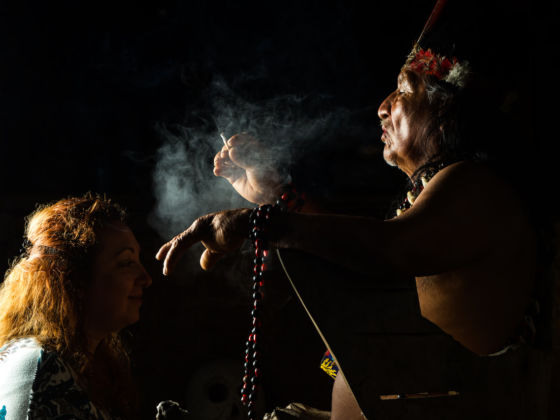Spiritual Emergency
Another danger of ayahausca is that many are not prepared for what happens after they take it. For guidance, I spoke to Sara Lewis, a clinical social worker and doctoral candidate in medical anthropology at Columbia University.
She told me the inherent problem is that there’s no screening process for ayahuasca: “Everyone takes it.”
